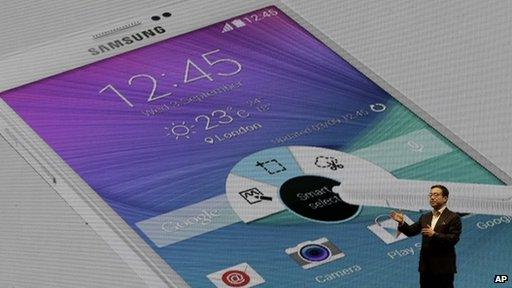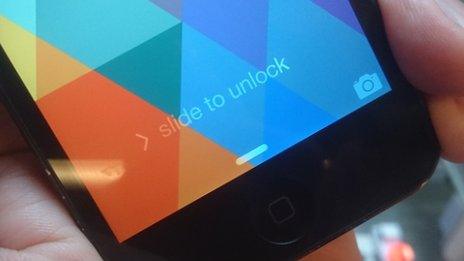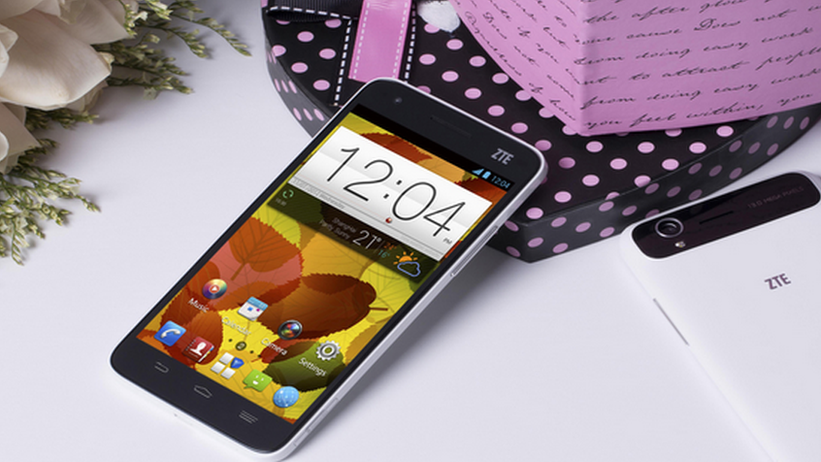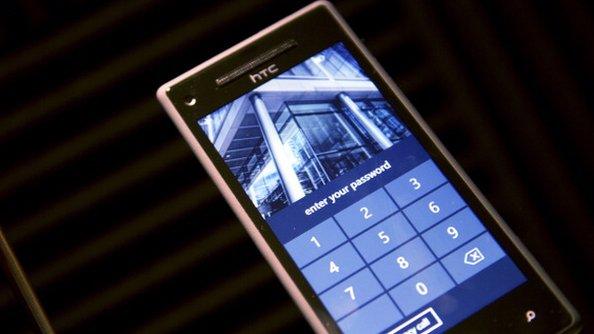Microsoft gets $1bn in Android royalties from Samsung
- Published

Samsung has been paying Microsoft huge sums to use its technologies in Android phones
Samsung paid Microsoft about $1bn (£626m) last year to use its technology in gadgets running Google's Android.
The figure is revealed in court documents Microsoft has filed to help legal action taken against Samsung.
The case revolves around the licensing agreement that generated the $1bn payment.
Samsung made one payment late and has now stopped paying altogether, claiming Microsoft's 2013 acquisition of Nokia had invalidated the agreement.
Microsoft has rebuffed this claim, saying the licensing agreement contains "explicit provisions" that allow it to buy other companies and still get cash from Samsung.
High stakes
Signed in 2011, the agreement was set to last seven years. The court papers reveal that in the second year of the agreement, which ran from July 2012 to June 2013, Samsung paid Microsoft more than $1bn. The amount Samsung pays grows depending on how many Android phones the South Korean electronics giant sells and what it charged for them.
Legal action over the deal was begun in August 2014 after Samsung was late to make a payment. At the time, Microsoft said it had launched the court action, external to recover about $7m it had lost in interest payments as a result of the cash arriving late.
Samsung has now refused to pay any more money for the licensing agreement. It has said it might take retaliatory legal action against Microsoft as the deal was a cross-licensing agreement that let the Seattle software firm use technologies owned by Samsung.
Technology patent expert Florian Mueller said in a blogpost, external that the legal row could get nasty given how much cash was at stake or if Samsung asserted its rights to technologies used in Nokia phones.
"The extreme outcomes are unlikely," he wrote. "A renegotiated license agreement is my best guess."
About 25 companies are thought to also pay Microsoft for permission to use its patented technologies in their handsets and other gadgets. The list includes HTC, LG, Acer and Nikon.
Microsoft began a licensing programme in 2010 to collect payments from tech firms it said were using its innovations.
Google's Android is now the world's most popular mobile operating system and the size of the royalty payments it has received from one signatory suggest Microsoft is making more money from Android than its own Windows phones.
- Published31 March 2014

- Published24 April 2013

- Published11 November 2012
